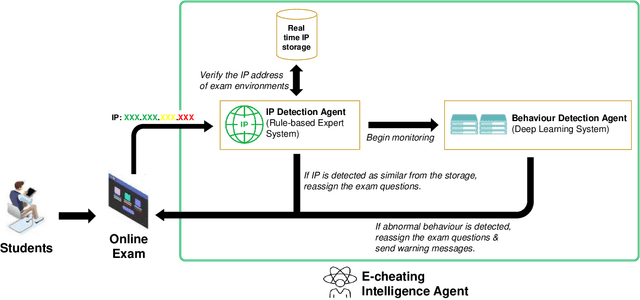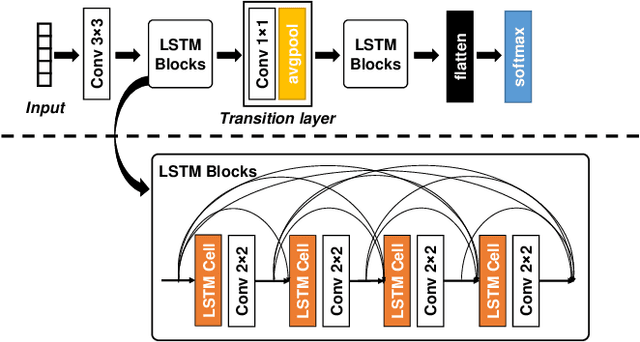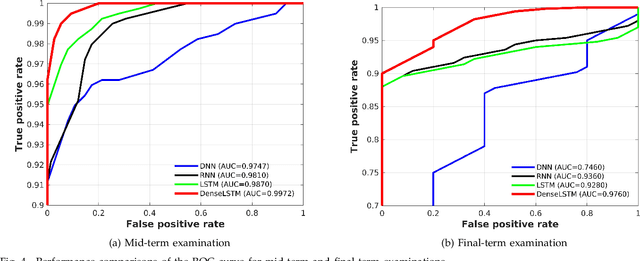HeeJeong Jasmine Lee
Online Assessment Misconduct Detection using Internet Protocol and Behavioural Classification
Jan 24, 2022Abstract:With the recent prevalence of remote education, academic assessments are often conducted online, leading to further concerns surrounding assessment misconducts. This paper investigates the potentials of online assessment misconduct (e-cheating) and proposes practical countermeasures against them. The mechanism for detecting the practices of online cheating is presented in the form of an e-cheating intelligent agent, comprising of an internet protocol (IP) detector and a behavioural monitor. The IP detector is an auxiliary detector which assigns randomised and unique assessment sets as an early procedure to reduce potential misconducts. The behavioural monitor scans for irregularities in assessment responses from the candidates, further reducing any misconduct attempts. This is highlighted through the proposal of the DenseLSTM using a deep learning approach. Additionally, a new PT Behavioural Database is presented and made publicly available. Experiments conducted on this dataset confirm the effectiveness of the DenseLSTM, resulting in classification accuracies of up to 90.7%.
E-cheating Prevention Measures: Detection of Cheating at Online Examinations Using Deep Learning Approach -- A Case Study
Jan 25, 2021



Abstract:This study addresses the current issues in online assessments, which are particularly relevant during the Covid-19 pandemic. Our focus is on academic dishonesty associated with online assessments. We investigated the prevalence of potential e-cheating using a case study and propose preventive measures that could be implemented. We have utilised an e-cheating intelligence agent as a mechanism for detecting the practices of online cheating, which is composed of two major modules: the internet protocol (IP) detector and the behaviour detector. The intelligence agent monitors the behaviour of the students and has the ability to prevent and detect any malicious practices. It can be used to assign randomised multiple-choice questions in a course examination and be integrated with online learning programs to monitor the behaviour of the students. The proposed method was tested on various data sets confirming its effectiveness. The results revealed accuracies of 68% for the deep neural network (DNN); 92% for the long-short term memory (LSTM); 95% for the DenseLSTM; and, 86% for the recurrent neural network (RNN).
 Add to Chrome
Add to Chrome Add to Firefox
Add to Firefox Add to Edge
Add to Edge